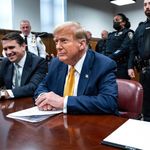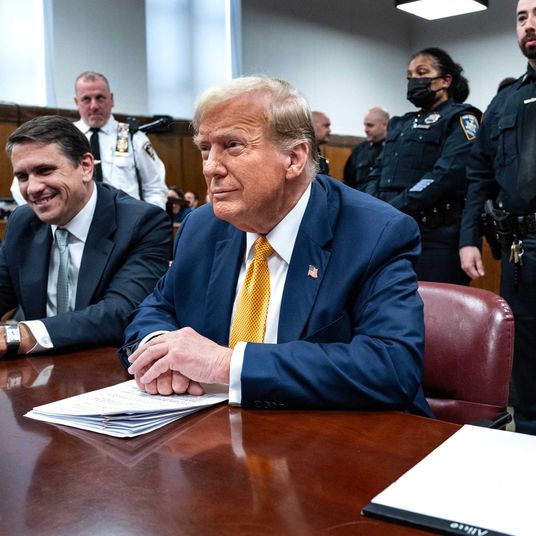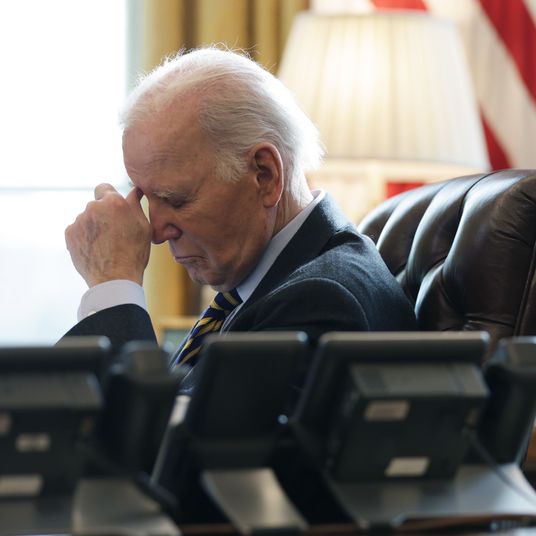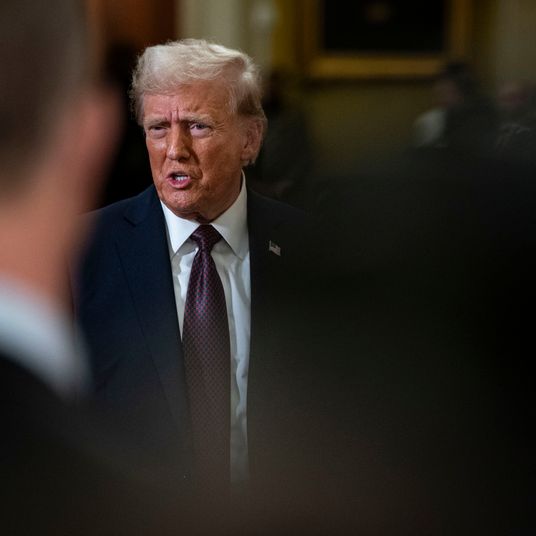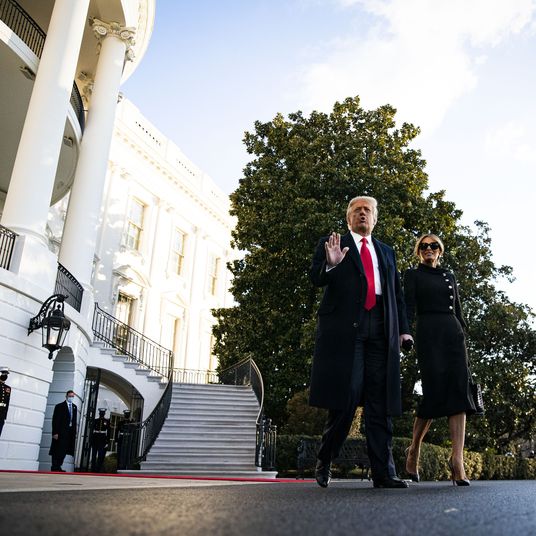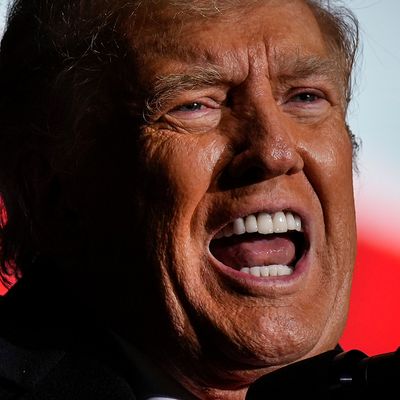
During Donald Trump’s long, futile effort to overturn his 2020 election defeat, he and his lawyers and allies floated a vast array of election-fraud claims. Some were entirely contrived or based on rumors (such as tales of Trump ballots being dumped into rivers), and others depended on sinister interpretations or mischaracterizations of entirely innocent moments in the vote-casting or vote-counting process (e.g., the ginger mints handed from one Fulton County, Georgia, election worker to another, which Rudy Giuliani claimed were USB devices with false voting data). Frustrating as it all was, it was possible in most cases to investigate these claims and rebut them, which is what election officials, state legislators, judges, journalists, and later the House January 6 committee spent months doing.
Nevertheless, the conspiracy theories persisted through the 2022 election cycle. And now, as the Washington Post’s Isaac Arnsdorf explains, Trump and his supporters are replacing concrete claims of misconduct with broader arguments that cannot really be refuted:
When Trump suggested in an online post earlier this month that the Constitution could be terminated to redo the 2020 election or declare him the winner, the “UNPRECEDENTED FRAUD” that he said required this “UNPRECEDENTED CURE” was no longer a conspiracy involving counterfeit mail ballots or sabotaged voting machines. Those claims have been thoroughly debunked in audits, litigation and outside reviews.
Instead, Trump was now advancing a new theory of how the election was “stolen” from him: a supposed scheme among social media companies, the FBI and the Democrats to suppress information that might have helped Trump’s campaign.
And Trump has had a highly influential ally in making this shift onto fog-enveloped ground:
The claim is fueled in part by new Twitter owner Elon Musk’s decision to release internal documents about the platform’s brief suppression of a 2020 news story about then-candidate Joe Biden’s son amid concerns it might be the result of disinformation efforts.
“The biggest thing to come out of the Twitter Targeting Hoax is that the Presidential Election was RIGGED — And that’s as big as it can get!!!” Trump said in another post on his Truth Social platform on Dec. 9.
Among the many factors that influence whether Americans bother to vote and then for whom they vote in national elections, the level of noise they have heard about Joe Biden’s ne’er-do-well son and his infamous laptop probably ranks down there with what they ate for breakfast on Election Day. But it’s very hard — nay, impossible — to disprove the possible consequences of even small events in very close elections.
This shift is not entirely new. Trump and his fan club have always undergirded their specific “stolen election” arguments with general attacks on the legitimacy of “the Establishment” thought to control elections — from the “fake liberal media” to “coastal elites” to the unimaginably powerful deep state. This corrosive distrust of “the system” is not, of course, an exclusive trait of the political right; progressive supporters of Bernie Sanders said many of the same sorts of things about the 2016 Democratic primaries being “rigged” in favor of Hillary Clinton. But then progressives didn’t try to reverse the outcome of elections in Congress or assault the U.S. Capitol.
In any event, Trump and Musk are hardly the only figures who are fanning the flames of this latest “stolen election” theory: It will almost certainly be a major focus of the new Republican House majority when it takes over in January. Arnsdorf writes:
Congressional Republicans, including the incoming chairmen of the House Oversight and Judiciary committees, are now clamoring to investigate Twitter’s handling of the Hunter Biden story as part of larger probes into alleged politicization at the FBI and the president’s son’s business dealings. Republican House leader Kevin McCarthy, who is trying to shore up the conference’s right flank to win the speaker’s gavel, has pledged to subpoena former intelligence officials who signed a public letter warning that the Hunter Biden story had “all the classic earmarks of a Russian information operation.”
Both within and far beyond Mar-a-Lago, the run-up to the 2024 presidential election is going to feature a lot of 2020 revisionism. And no counterarguments will make much of a difference unless Republican voters begin to get sick of it all.
More on politics
- When You Come at the King
- Trump Cabinet Picks: How to Watch the Confirmation Hearings
- The Tragic Legacy of the Mourner-in-Chief





